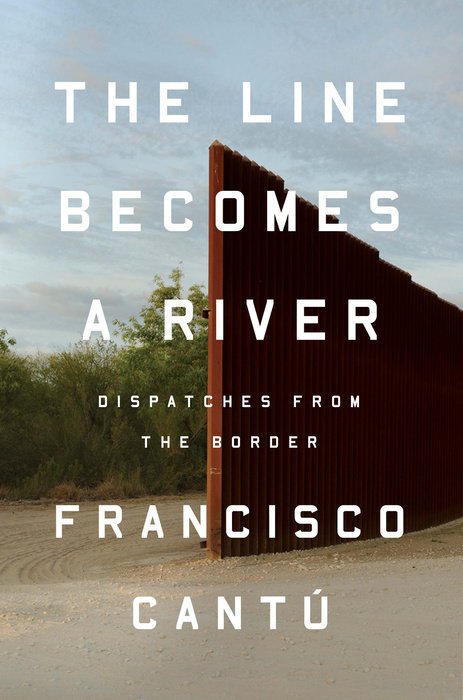
Cantú finds out that border agents are not so much college boys like him, but former cops and soldiers, migrants from cold climates and crappy jobs. Some new arrivals have no idea what’s going on at the border, but all are primed at the academy for narco warfare, with lurid PowerPoints of people killed by Mexican cartels: heads in an ice chest, bodies stacked in a cattle truck.
This is what you’re up against, this is what’s coming, the instructor says.
Except it isn’t. The job is often boring, chasing footprints, staring at monitors, shuffling paper. “You don’t want to bring in any bodies with your dope if you can help it,” Cantú is told. “Suspects mean you have a smuggling case on your hands, and that’s a hell of a lot of paperwork.” The aliens we encounter are not narco bosses and murderous kidnappers but their victims: bewildered, disoriented, helpless migrants. Some are dead. They don’t fit the terror profile.
A weeping woman tells the agents arresting her that it’s her 23rd birthday. She wants to be like Selena, and sings “Bidi Bidi Bom Bom” on her way to detention. A man found in the fetal position has been drinking his urine for four days. A fat teenager lies sobbing in a mesquite thicket; the group left him behind.

Each migrant has a wrenching story, but to agents these are just “wets,” or “POWs,” “plain old wets.” Salvadorans are “el sals.” “Quitters” are just that. Cantú finds two of them huddling in a church, a man and a woman. They had been lost for days, surviving on filthy water from cattle tanks. She is six months pregnant. Cantú gives them water bottles and asks their names, which he soon forgets.
In case you think compassion is the rule, Cantú makes a confession.
“It’s true that we slash their bottles and drain their water into the dry earth, that we dump their backpacks and pile their food and clothes to be crushed and pissed on and stepped over, strewn across the desert and set ablaze. And Christ, it sounds terrible, and maybe it is.”
Maybe?
“But the idea is that when they come out from their hiding places, when they regroup and return to find their stockpiles ransacked and stripped, they’ll realize their situation,” he adds, is hopeless. ”And they’ll quit right then and there, they’ll save themselves.” That, says Cantú, is “the sense in it all.”
Robbing migrants of water in 115-degree Sonoran heat to save them sounds like exquisitely tortured rationalizing. Recent news accounts and videos of agents destroying water caches suggest that Cantú’s account is accurate, though the Border Patrol has also said it does not condone life-threatening vandalism. So whose logic governs? Who is lying, who has gone rogue — Cantú and his buddies, or the agency itself?
Later Cantú tips us to a secret he couldn’t tell his own family — that he and his brother agents ran like a mob of teenage vandals:
“I wanted to tell my uncle that I had known men to engage in senseless acts of defilement, depositing car seats and furniture on far-off hillsides and in remote washes, decorating cacti with women’s undergarments, hanging twisted bike frames from the towering arms of saguaros, dislodging massive boulders to tumble down sloping mountainsides, and setting fire to anything that would burn — abandoned automobiles and trash piles and proud desert plants left to smoke and smolder through the night.”
They sound like poorly trained men with not enough to do. Yet this is a glancing admission, slipped passively into the narrative without elaboration. Cantú recounts moments of tender connection with frightened, injured border crossers. But he seems unwilling to look too closely at his complicity in despicable behavior, leaving a reader to worry about the fate of that close-up quest for enlightenment he told his mother he was after.
We surmise early on that Cantú, his psyche under strain, is not long for the job. He loses sleep, he grinds his teeth, he has bad dreams about wolves.
Then the book shifts abruptly. Cantú leaves the agency. Now he’s a barista and studying for a master’s degree. But here, finally, he takes us deep into a border story — that of his new friend José, 30 years in the United States, nabbed by the Border Patrol after returning from Mexico, where he had gone to see his dying mother. The last third of the book, as José and his family desperately fight his deportation, with Cantú’s considerable help, makes a useful contribution to the literature of today’s border. It lays bare, in damning light, the casual brutality of the system, how unjust laws and private prisons and a militarized border have shattered families and mocked America’s myths about itself.
“We mostly arrested the little people,” Cantú tells José. “Smugglers, scouts, mules, coyotes. But mostly I arrested migrants, I confessed. People looking for a better life.” He should have listened to his mother.
Continue reading the main story
Powered by WPeMatico

